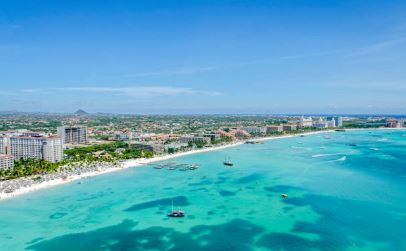Aruba has experienced a surge in condominium development since the early 2000’s. This despite or perhaps because of the relatively late development of condominium complexes in Aruba compared to other islands in the Caribbean.
Condominium units have become a popular choice for second homeowners who want to buy a piece of paradise in Aruba. The development of condominium units for local buyers on the other hand has yet to take off.
This article will primarily focus on and analyze the process of establishing condominium rights in Aruba and the rights and obligations of condominium owners here in Aruba.
Aruba has two basic concepts of land ownership, one being full ownership properties (“eigendom”) and the other being long lease properties (“erfpacht”). The latter is by far the most common type of property existing in Aruba. Both types of properties can be developed into condominium projects but the latter will require approval from the lessor which is the local government.
In general, any building developed on one of the two property types will be subject to rights of accession. This entails that the owner of the property is automatically the owner of the land. This basic property law principles creates a problem when the owner intends to sell separate units in a building as property rights. To ensure that each unit can be sold separately and transferred in title to a buyer a special deed of division needs to be executed through a local civil law notary (lawyer). Besides giving a detailed description of each unit created, this document will include the incorporation of a homeowner’s association with articles of incorporation and the rules and regulations that will apply to each individual owner. The condominium developer is also required by law to draw up detailed division plans showing all of the units to be created and delineating the private areas from the common areas.
All owners are required by law to become a member of the homeowner’s association ("HOA") upon acquiring title to a condominium unit. The association will establish an annual operating budget which will include maintenance fees covering certain costs that affect all owners. These usually include costs for maintenance for the outside of the building, the common areas and facilities such as pools and fitness rooms, building insurance, landscaping, security and a reserve fund for incidental expenses.
Any purchaser should inquire about the amount of the monthly fees since these can vary greatly between different projects. The reserve fund is also an important aspect when purchasing a condominium from an older project. How much funds does the HOA have available to pay for incidental and unexpected expenses? Although Aruba is out of the ‘hurricane zone’ unexpected maintenance issues can always occur in any project.
All condominium rights in Aruba can be encumbered with mortgages and are freely transferable to another party. Any transfer of a condominium will be subject to a 3% transfer tax over the first Afl. 250,000 of the purchase price (approx. $140,000) and 6% over the additional amount as well as civil law notary closing fees, which depending on the value of the condominium can vary between approximately 1.5-2%.
Condominiums will also incur an annual property tax of 6 mills (6 0/00) of the property value. If the condominiums have been developed on a long lease property, which is often the case in Aruba, the entire property will also be subject to an annual long lease fee. This fee will be assessed through the HOA and will be added in the annual budget.
All owners in Aruba have a right to vote in an annual meeting and under certain conditions can request the board of the association to hold an extraordinary meeting as well. Any changes that are to be made to the existing rules and regulations of the condominium project, will require a qualified majority of 80% of all homeowners after the board of the HOA proposes such changes and shall be subject to approval of all mortgagees who hold a mortgage on a condominium in the project. In other words, getting changes made is not an easy process in Aruba. To avoid these obstacles, certain rules and regulations can be further detailed in bylaws but in general these bylaws may not include rules that would contravene or restrict a homeowner more than the existing rules and regulations already do.
As mentioned in the beginning of this article, Aruba has not experienced any significant development of condominiums for the local market as yet. Similarly to other countries in the developed world, the demographics in Aruba have been showing that Aruba is currently experiencing an ageing population. It seems very likely that this group along with other local buyers who are not looking to purchase a large residence, will increase demand for more (affordable) condominiums in Aruba. Until now the government has not developed specific housing policy objectives in this regard. There is one local project ongoing for local condominium buyers.
Condominium units have added a new and exciting dimension to the local property market and all indications are that the amount of available condominiums on the island will continue to increase in the future.
